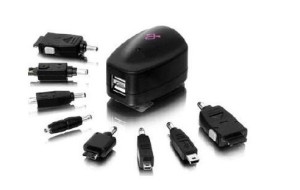The Courts are reining in the improper assertion of “standard-essential patents” in patent infringement lawsuits.
For the last three years Apple has been suing Samsung for patent violations in the U.S. and many foreign countries. In desperation, Samsung has often only been able to counter-sue Apple on the basis of infringements against their “standard-essential patents.”
In Apple v Samsung, the International Trade Commission uncharacteristically found in favor of Samsung and ruled that that the importation and sale of certain iPhones and iPads should be banned in the U.S. because Apple infringed a Samsung patent. The patent in question was a standard essential patent for a trivial hardware component known as a “baseband processor.” The processor would allow Apple products to operate under the Universal Mobile Telecommunications Standard for cellular networks.
In truth, Apple had requested a license for the technology from Samsung, but Samsung had tried to charge Apple an exorbitant royalty of 2.4% on each iPhone and iPad. Their tactic, known broadly as a “patent holdup,” was designed to block a competitor or force them to charge a higher price for their product in the marketplace. After attempts by Apple to negotiate the rate with Samsung, Apple refused on principle to take a license for the standard and complained to the standard-granting body for “discriminatory terms.”
The ITC ruling has been protested against as flying in the face of judicial opinion that stands against the assertion of standard-essential patents in the U.S. and elsewhere.
Standard-essential patents are those “industry standard” patents that cover basic functions that all technological devices have to perform to operate seamlessly with one another. Thousands of such standards are in play in our modern world, and all technological products use them. Standards allow interactivity and interoperability between differing technology platforms, and, for example, without them smartphone communications couldn’t flow across cellular networks, and Bluetooth wouldn’t work in your car.
Generally patent owners want to be part of an industry group technological standard because it ensures the broad adoption of their technology. However, to keep standards affordable, licensing royalty rates have to be nominal. Standard setting organizations suggest that patent owners will be compensated for low royalty rates by the volume of royalties received under broad adoption.
To be a part of an industry standard, patent owners must pledge their technology to be part of a technical standard for the life of the standard, and promise that they will license all comers for a low price and under “fair, reasonable, and non-discriminatory terms” (often called RAND).
The recent ITC ruling in favor of Samsung is wrong both on the merits of the case and for failing to uphold the public policy role of standard-essential patents. Further, it runs against every other legal authority that has ruled on standard-essential patents and attempts by companies to claim high royalty rates when their patent is just a small piece of a greater product.
During 2011, a federal court in Seattle ruled against Motorola for offering the wireless communication standard 802.11 to Microsoft under outlandish terms. In this ruling, Judge James L. Robart maintained that a RAND royalty should be set at a level that was consistent with promoting the widespread adoption of the standard. Because many standards may be involved a device, royalty rates must be set low to ensure that the combined cost of the respective standards wouldn’t price a product out of the market.
Further, Judge Richard Posner of the U.S. Court of Appeals, a special court that hears patent infringement cases, ruled that injunctive relief is not available to the holders of standard-essential patents who voluntarily committed to license their patents under RAND terms.
In 2012 and 2013 the European Commission issued two antitrust complaints against companies that refused to stop asserting standard-essential patents, and courts in Japan and the Netherlands have ruled that companies that assert standard-essential patents are engaging in unlawful conduct by seeking standard essential injunctions.
As well, the Federal Trade Commission has spoken out against using standard-essential patents to exclude products from the marketplace or to increases retail product pricing because both harm consumers.
Fortunately, in the case of the ITC ruling in Samsung’s favor, the White House, acting under powers granted under the Smoot-Hawley Tariff of 1930, have acted to overturn the ITC ruling. In a letter explaining the White House veto, the U.S. Trade Representative Michael Froman explained the decision claiming that it was not in the public interest, was likely to cause economic disruption, and that it was sanctioning a patent holdup.






